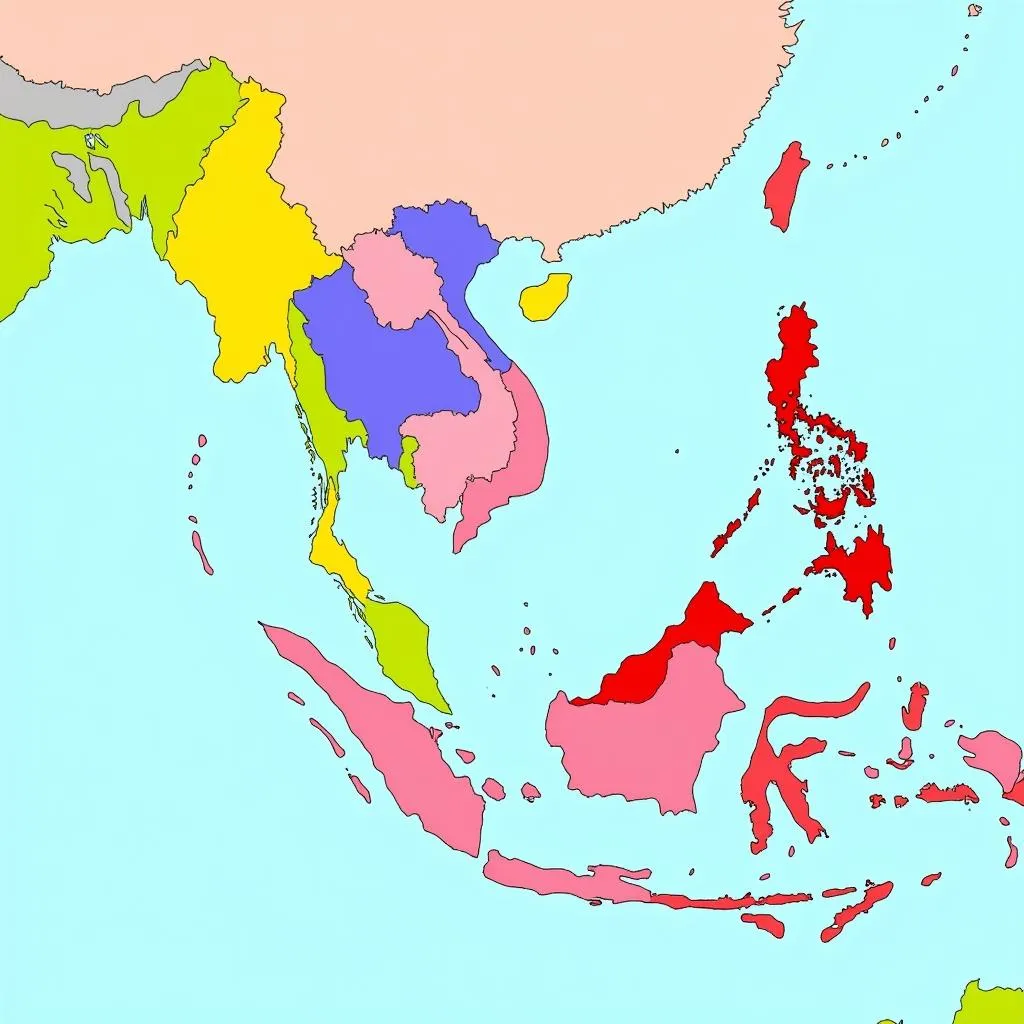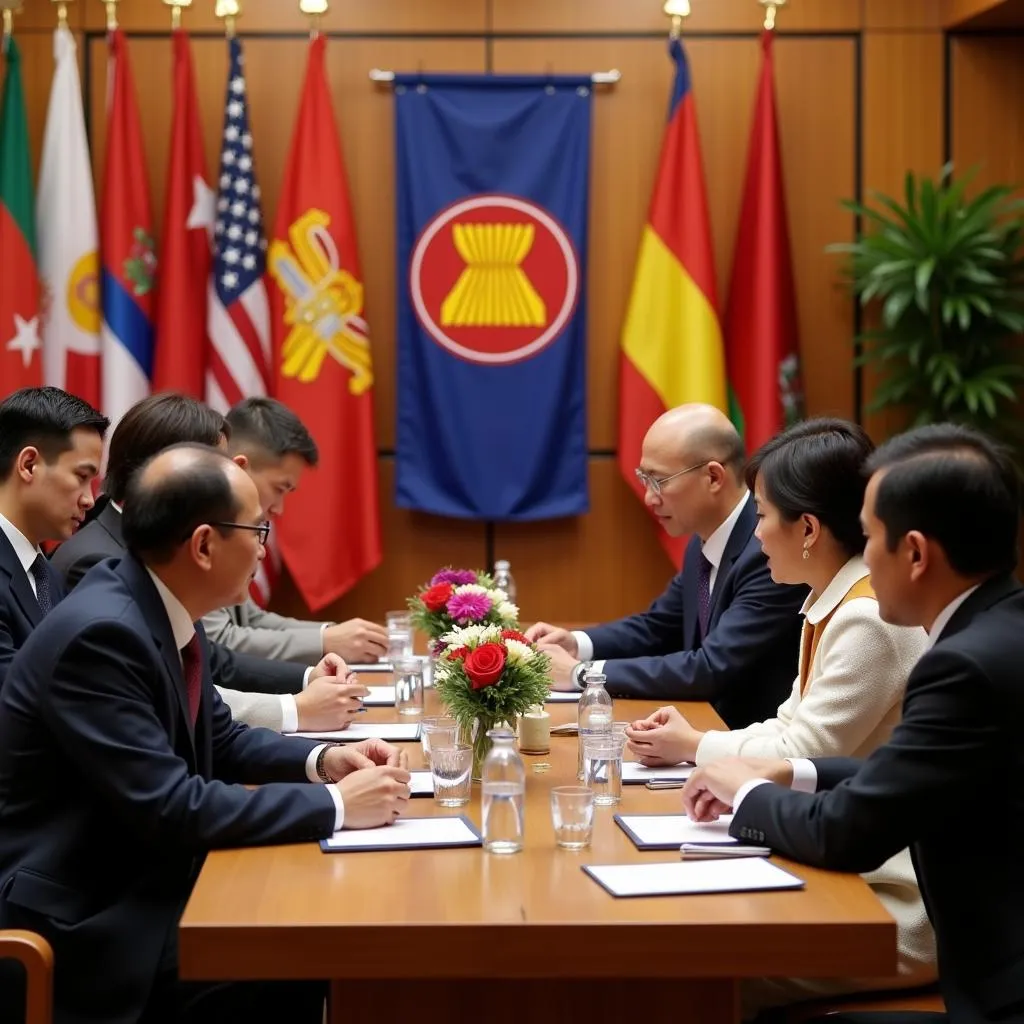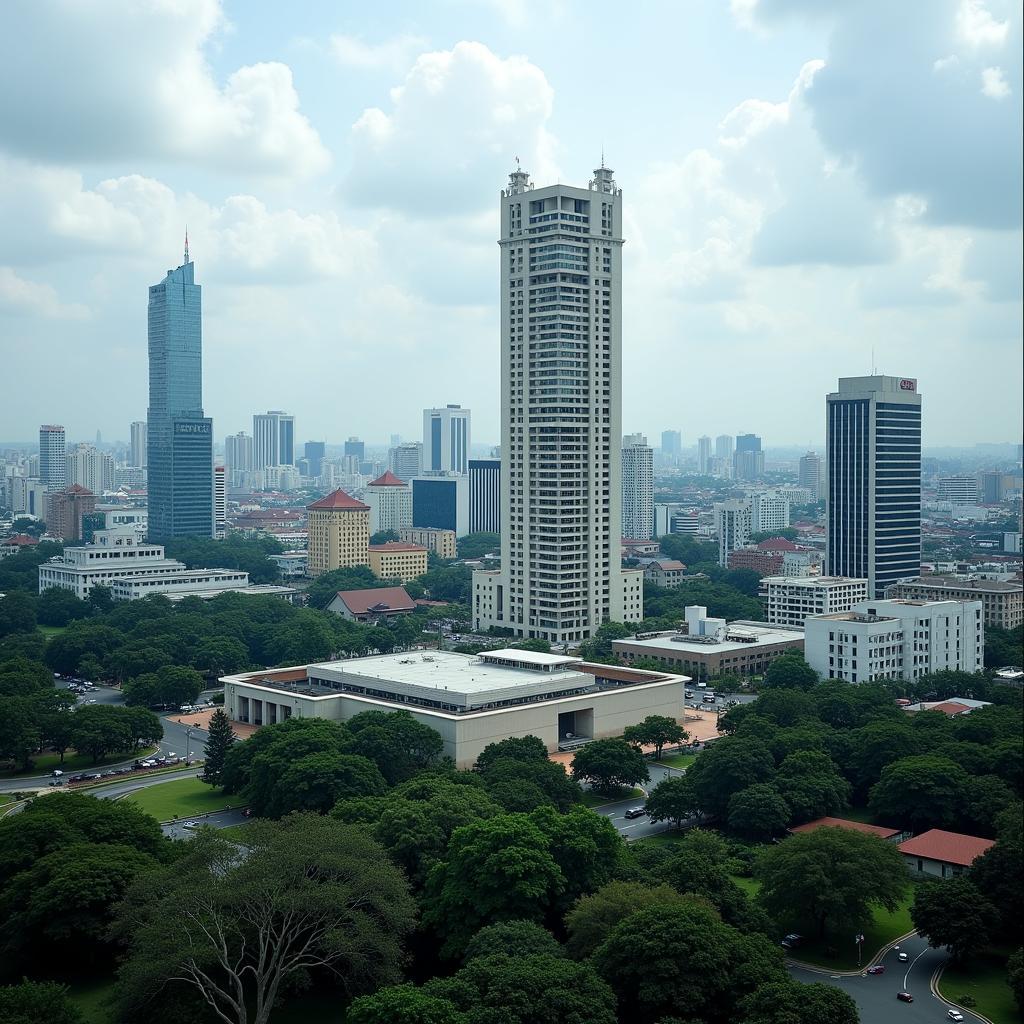The Association of Southeast Asian Nations, or ASEAN, is a political and economic union of 10 member states in Southeast Asia. These countries work together to promote peace, stability, and economic growth in the region.
ASEAN Countries: A Closer Look
So, you want to know more about the members that make up ASEAN? Here’s a glimpse into each nation:
- Brunei: Known for its oil wealth and stunning mosques, Brunei is a small but influential nation.
- Cambodia: Home to the majestic Angkor Wat, Cambodia is a country of rich history and culture.
- Indonesia: A vast archipelago with diverse cultures and breathtaking landscapes, Indonesia is a rising economic power.
- Laos: Landlocked and mountainous, Laos offers a tranquil escape with its Buddhist temples and laid-back atmosphere.
- Malaysia: A melting pot of cultures and a hub for tourism and finance, Malaysia boasts vibrant cities and stunning natural beauty.
- Myanmar: Emerging from decades of isolation, Myanmar is a country of immense potential with its ancient temples and unspoiled landscapes.
- The Philippines: An archipelago nation known for its warm hospitality, the Philippines offers stunning beaches, delicious cuisine, and a vibrant culture.
- Singapore: A global city-state and a leader in innovation and technology, Singapore is known for its efficiency and multiculturalism.
- Thailand: Famous for its beaches, temples, and street food, Thailand is a popular tourist destination and a key player in Southeast Asia.
- Vietnam: A country of resilience and dynamism, Vietnam is known for its bustling cities, beautiful beaches, and delicious cuisine.
 Map of ASEAN Countries
Map of ASEAN Countries
Why was ASEAN Formed?
ASEAN was formed on August 8, 1967, by Indonesia, Malaysia, the Philippines, Singapore, and Thailand. These five founding members recognized the importance of regional cooperation in the face of political tensions and economic challenges during the Cold War era. The Bangkok Declaration, signed at the organization’s inception, outlined its key principles:
- Cooperation: To accelerate economic growth, social progress, and cultural development.
- Peace: To promote regional peace and stability through mutual respect and adherence to the principles of the United Nations Charter.
- Neutrality: To maintain neutrality in matters of great-power politics.
ASEAN’s Impact and Influence
Since its formation, ASEAN has played a crucial role in fostering peace, stability, and economic growth in Southeast Asia. The organization has:
- Facilitated Dialogue and Cooperation: ASEAN provides a platform for its member states to engage in constructive dialogue and address shared challenges.
- Promoted Economic Integration: ASEAN has worked towards creating a single market and production base through initiatives like the ASEAN Free Trade Area (AFTA) and the ASEAN Economic Community (AEC).
- Enhanced Regional Security: Through forums like the ASEAN Regional Forum (ARF), the organization addresses security concerns and promotes dialogue on regional security issues.
 ASEAN Summit
ASEAN Summit
The Future of ASEAN
ASEAN continues to evolve as a regional bloc, facing new challenges and opportunities. The organization is focused on:
- Narrowing the Development Gap: ASEAN aims to reduce disparities among its member states and ensure inclusive and sustainable growth.
- Promoting Innovation and Digital Economy: The organization recognizes the importance of technological advancement and aims to foster innovation and digital literacy among its members.
- Strengthening ASEAN’s Global Role: ASEAN seeks to enhance its international profile and play a more active role in global affairs.
ASEAN: A Region of Diversity and Potential
ASEAN’s ten member countries, with their unique cultures, histories, and economic strengths, collectively represent a region of immense diversity and potential. The organization serves as a testament to the power of cooperation and dialogue in addressing shared challenges and fostering peace, stability, and prosperity in Southeast Asia. As ASEAN continues to evolve, it will undoubtedly play an increasingly important role in shaping the future of the region and beyond.
FAQs about ASEAN Countries
1. What is the newest member of ASEAN?
Cambodia became the newest member of ASEAN in 1999.
2. What are the official languages of ASEAN?
While ASEAN does not have an official language, English is widely used as the working language for communication and official documents.
3. What is the ASEAN Charter?
The ASEAN Charter, adopted in 2007, provides a legal framework for the organization and outlines its goals, principles, and mechanisms for cooperation.
4. How does ASEAN promote economic cooperation?
ASEAN has implemented various initiatives to promote economic cooperation, such as the ASEAN Free Trade Area (AFTA) to reduce tariffs and trade barriers and the ASEAN Economic Community (AEC) to create a single market and production base.
5. How can I learn more about ASEAN?
For more information about ASEAN, you can visit the official website of the ASEAN Secretariat or explore resources from reputable organizations like the ASEAN Foundation and the Centre for ASEAN Studies.
Need Assistance?
For any inquiries or assistance regarding ASEAN, please don’t hesitate to contact us:
Phone Number: 0369020373
Email: [email protected]
Address: Thon Ngoc Lien, Hiep Hoa, Bac Giang, Vietnam
Our dedicated customer support team is available 24/7 to assist you. You can also find more information and resources on our website.
